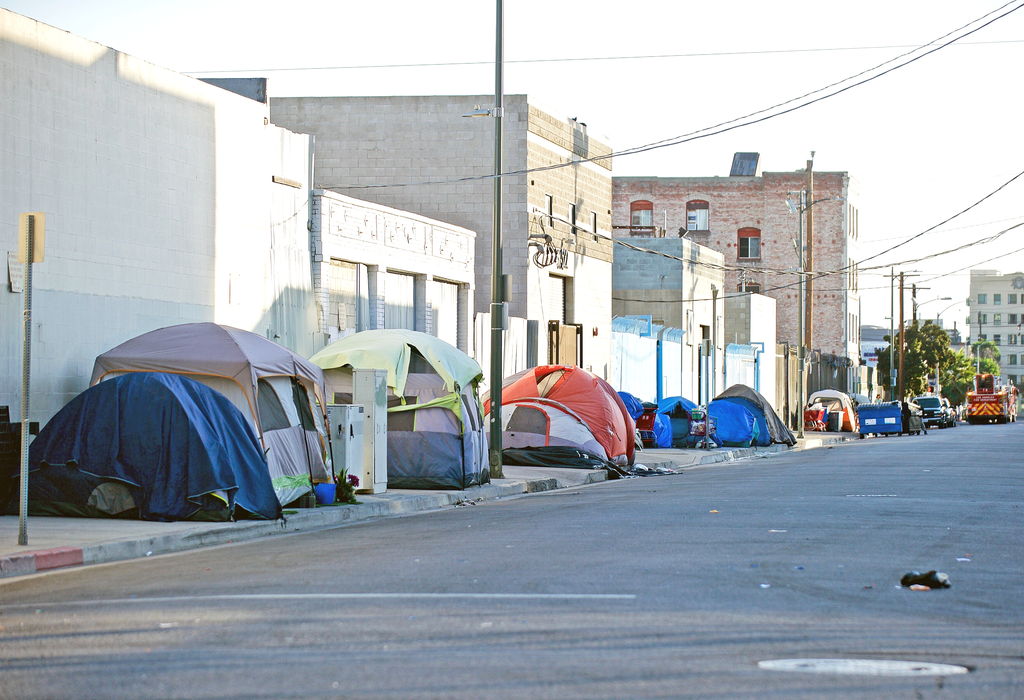A Big Gift for Homelessness From the Tech Billionaire Begging His Industry to Do More
/The chairman and co-CEO of Salesforce, Marc Benioff, and his wife Lynne recently gave the city of San Francisco $6.1 million to preserve a hotel in the city’s blighted Tenderloin neighborhood rather than convert it into market-rate units. It will provide affordable housing for formerly homeless people. The gift from the Benioffs will cover the first five years on a 20-year lease for the 58-unit building.
The couple are longtime leaders in the Bay Area tech philanthropy scene. They’re known for both their personal generosity and Marc’s commitment to corporate philanthropy. While other big givers from Silicon Valley get more attention, the Salesforce founder ranks among the industry’s most active apostles of greater giving and a broader vision of business social responsibility. That’s especially true in the Bay Area, where Benioff has repeatedly pleaded with his wealthy tech peers to do more for local causes.
Benioff himself walks the walk. The Benioffs and Salesforce have given extensively to area hospitals and the local public school districts. Through the company’s philanthropic arm, Salesforce.org, it’s poured a total of $50 million into the San Francisco and Oakland school districts over the last five years.
The Benioffs have also supported San Francisco’s homeless. Earlier this year, Marc vowed to raise $200 million to address this problem.
An estimated 7,500 homeless live on the streets of San Francisco. More than half became homeless after arriving in the city. And while experts say the problem hasn’t worsened in the past few years, it has become more apparent, serving as an increasingly visible reminder of the growing divide between the city’s haves and have-nots—a dynamic exacerbated by the tech industry that Benioff is part of.
This fall, Salesforce.org committed $2 million in grants to address homelessness and hunger in the Bay Area. Of that, it gave $1 million to the San Francisco-Marin Food Bank. To help homeless kids and families get back on their feet, the company donated $500,000 apiece to Larkin Street Youth and Hamilton Families.
The gift to Hamilton Families built on previous support from Salesforce and the Benioffs. In total, the company has donated $4 million to the organization, which finds homes for homeless families—often outside of the city in cheaper real estate markets. The Benioffs have personally given about $11.5 million to the nonprofit.
The couple were also among the donors behind a $100 million push to fight homelessness that the Tipping Point Community began last year. The nonprofit is popular hub for tech philanthropists in the Bay Area. The organization raises money and reinvests it in Bay Area nonprofits that are most effectively helping the city’s poor through education, employment, housing and early childhood learning.
Homelessness is one of its signature causes. Tipping Point emphasizes creating permanent supportive housing for the homeless, which many in the field see as key in any long-term strategy to help the group. As we’ve reported, there’s growing optimism in funding circles that this approach offers a real solution to homelessness—a sense of hope that is drawing new donors and resources to an issue that many previously avoided as a hopeless cause.
Related: An End to Homelessness? Behind the Rising Optimism Among Funders
That brings us back to the Benioffs’ most recent gift to support the city’s homeless. The $6.1 million grant to the city will cover part of the renovated hotel’s lease. San Francisco Mayor London Breed says she’s looking for other philanthropic partners to cover the rest of the 20-year lease.
The hotel will house 58 units that formerly homeless people can rent for $500 to $650 a month, depending on the size. The space is intended for people who are living in city-provided housing now, but who are ready to live more independently. That in turn will open up space for those still living on the streets. It’s part of the mayor’s commitment to add 1,000 new beds to homeless shelters by 2020.
Something worth noting here is the scale. The $6.1 million gift is nothing to sneeze at. In fact, it’s nearly triple the size of the Salesforce.org grant to the San Francisco Unified School District when the two started their partnership back in 2013. But the result is only 58 apartments.
That disconnect gets at the challenge philanthropy faces when it goes up against complex problems with entrenched, structural obstacles, like homelessness. Even with the resources at the Benioff’s disposal, it can be hard to compete with the reach and scope of a government.
The Benioffs themselves seem to realize the limits of philanthropy. The couple spent millions earlier this year in support of a controversial ballot initiative that would create a fund to support the city’s homeless paid for by a tax on San Francisco’s biggest businesses. Voters approved the ballot measure, but whether or not it can take effect will be decided by the courts.
Tech industry leaders poured millions into campaigns for and against the measure. Benioff called out peers opposing the measure for not doing enough to solve the problem. If it takes effect, the tax is estimated to raise $300 million for the city’s efforts and, according to Benioff, would add $10 million a year to Salesforce’s tax bill.
Related:


































